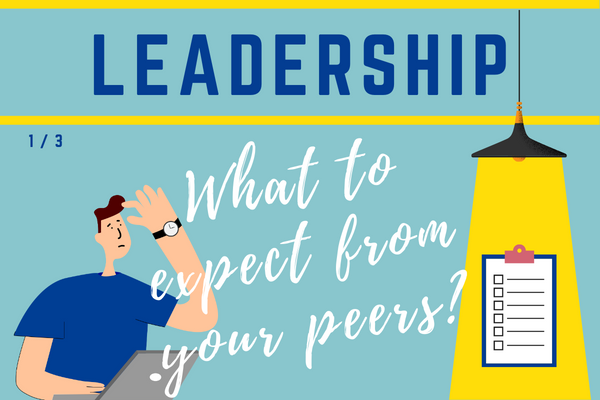
Leaders, what can you expect from your peers? What do they expect from you?
Issue 1 of the three-part series focuses on my expectations of leaders in terms of People, Respect and Appreciation.
On my journey to my personal core values, I have addressed a number of topics. Among others, I asked myself: “What do I expect from colleagues in leadership positions?” and also “What is my role as a leader?” These questions are anything but easy to answer. My expectations in this series of three posts reflect the bare “minimum” that I expect from a reflective leader. Beyond this minimum, only the sky is the limit.
- Leading by example – appreciation and respect
- Attitude towards people – empathy
- Listen to people – demand and encourage
Leading by example – appreciation and respect
Punctuality Top-level management is punctual to agreed appointments. Nothing to add. Time of employees is as valuable as time of senior management.
Appreciation and Respect are due to people, but also to work results. For me especially appropriate language expresses appreciation and respect for people – employees, colleagues, customers, suppliers, janitors.
Verbally degrading people and results in public (e.g. ‘… we need to get this sh*t out …’ or ‘… this stupid idiot of a janitor …’) raises questions with people – ‘Why am I working on this sh*t?’, ‘How do they name me when I’m not present?’. This doesn’t create a culture of trust and willingness to out-perform.
I expect any level of management to show appreciation for the effort that is being put forth within the organization. Teams that go above and beyond and deliver need appreciation. This can come in the form of praise, recognition, and especially appropriate language.
Employees are adults management members are not mommy and daddy. Employees are grown-up, intelligent people who enjoy coming to work to contribute. If this were not the case, we should ask ourselves why the organization employs them. One of my expectations on leaders is to treat employees as grown-ups!
Attitude towards people – empathy
Empathy (= the capacity to understand or feel what another person is experiencing from within their frame of reference, that is, the capacity to place oneself in another’s position *) )
Empathy is the ability and willingness to recognize, understand and relate to sensations, emotions, thoughts, motives and personality traits of another person
Unknown, but hits it very well
This personal ability to understand people, their motivation, sense their thinking, get an understanding of their needs is fundamental for any leader. Empathy is for me a form of appreciation of people. Leaders have this ability, some more developed, some less so. The degree to which it is developed is irrelevant, but it is important for individuals to recognize how much attention needs to be paid to empathy. Empathy is important in coaching situations to recognize how to support others and by what means. Empathy is also important for recognizing organizational shortcomings and being able to initiate appropriate countermeasures.
Listen to people – demand and encourage
An organization is able to attract great talent if – and only if – the overall interview process is a great experience and the players involved are fully motivated and willing (!) to attract new people. The interviewers need to fully stand behind the organization, the values and the culture. The organization can not attract people if that’s not the case.
PEOPLE QUIT PEOPLE, NOT COMPANIES *)
John C. Maxwell
As a leader one of your biggest duties is to work with your people. Apply the principle “Demand and Encourage“. As a leader you’ve hired great talent – and why shouldn’t you use the talent? Demand from people to fulfill their tasks, to reach goals, to outgrow themselves, to lead the company to success. Encourage them to go the extra miles needed to achieve personal growth. Listen to them, work with them – together – to master challenges ahead. Work together with them through the “LOVE, CHANGE, LEAVE” cycle.
Typically, people leave quite soon after they enter the “LEAVE” phase and it’s the leaders’ job to prevent people from entering the “LEAVE” phase. Another of my expectations on leaders is to give people reasons to stay, to support them, to encourage them to grow.


Pingback: Expectations on leaders - issue 3: Your Role & Yourself